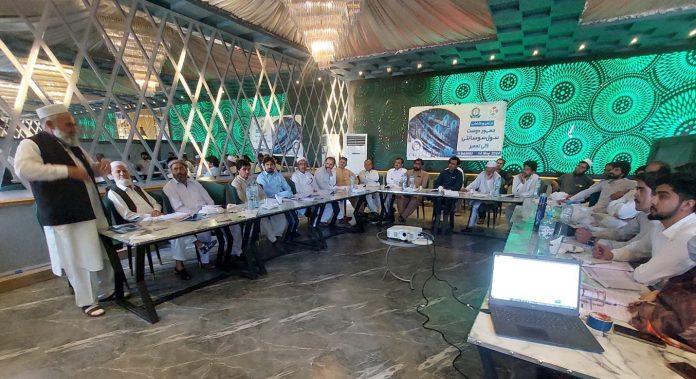Bannu, May 30, 2024: FAFEN’s Southern Sustainable Democratic Network conducted a one-day training session in Bannu on May 14, 2024, to enhance the capacity of its Regional Member Organizations (RMOs) to understand the electoral, parliamentary, and local governance issues and to generate voice for electoral reforms from the grass root level. As many as 15 RMOs actively attended the session and took part in discussions and group activities.
The training focused on enhancing the knowledge and skills of the participants regarding efforts for public support for electoral reforms, initiating to promotion of the culture of political and community dialogue to reduce political polarization, assessing the suitability of the working environment for civil societies, and sharing of challenges faced by RMOs, use of digital media in local societies to develop packages and information in multimedia formats for integration with FAFEN Digital.
The training sessions engaged the participants in a discussion about the definitions of the Constitution and articles related to elections in the Constitution and the Elections Act of 2017. Participants were invited to provide suggestions for improving the electoral process, and detailed explanations were given on district-level dialogues with electoral stakeholders concerning reforms and procedures.
The participants were also introduced to FAFEN Digital and were guided on mobile phone camera settings and the importance of good videography. The participants practiced using a tripod and microphone to improve their skills for recording an effective video. The session helped the participants improve their comprehension of the Constitution and the Elections Act of 2017, enhance their understanding of polarization and methods to unite citizens around common interests, and acquire practical skills in mobile videography, including camera settings, tripod, and microphone usage, introduce to FAFEN Digital, broadening their capacity for digital engagement and documentation, and recognize challenges faced by civil society and the importance of a supportive operational environment.




